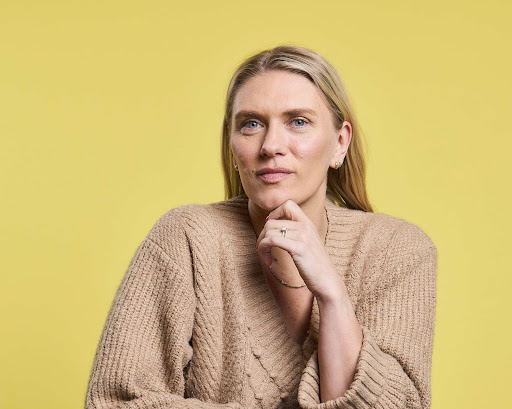Lindsay Dahl is the Chief Impact Officer at Ritual, a traceable supplement brand and a 20 year environmental health advocate. A nationally awarded sustainability and impact leader, Lindsay was the Head of Mission at Beautycounter for nearly eight years and prior to that helped lead federal lobbying and grassroots initiatives that helped pass new laws on toxic chemical pollution. She started her career working on climate and consumer safety legislation in Minnesota, where she helped pass the first national ban on BPA in baby bottles among other legislation. To date, Lindsay has helped pass over 30 environmental and public health laws at the state and federal level. She is the author of a book called Cleaning House: The Fight to Rid our Homes from Toxic Chemicals.
What’s one widely accepted belief of the supplement industry that you think deserves to be challenged, and why?
Consumers are skeptical that supplements are safe and actually work. There’s a very valid reason for this; in fact, it’s the reason Ritual exists. The supplement industry has grown over 2000% since the 1990s, which happens to be the last time Congress passed laws overseeing the safety and efficacy of products on the market. The bar for federal regulations in the supplement industry is low, leaving ample room for more oversight of our multi-billion dollar industry.
At Ritual, we believe brands should invest in clinical trials of their products, and we set an ambitious goal to have human clinical trials on all of our products by 2030. We also know that safety issues are widespread, including new research confirming heavy metal contamination in prenatal vitamins is a real issue. As a result, we put ingredient traceability front and center and test all of our products for heavy metals. Bucking industry norms, we share those results publicly, in addition to advocating for a California law that would require testing transparency for prenatal vitamin manufacturers.
Can you share an example of a bold risk you took in your career that paid off (or taught you a valuable lesson)?
Early in my career I was working on legislation in the state of Minnesota to ban toxic flame retardants from furniture. After eight long months, we passed the bill through the Minnesota legislature with strong bipartisan support, but it was quickly vetoed by the Governor. I took a big risk for being young in my career and I launched a press campaign about how vetoing the bill was an affront to Minnesota families and went against the scientific evidence.
The public awareness campaign worked and we passed the bill the next year. This risk empowered me to really lean into the strong body of peer-reviewed science that shows how certain toxic chemicals end up in our products, bodies, and their impact on our health. It could have been easy to let the veto stand, but I learned that when you properly communicate science to the public, you can create grassroots pressure required for broad public health wins.
What’s one small but powerful change the supplement industry could make today that would have a lasting impact?
If supplement brands learned more about their suppliers and invested in better ingredient traceability, they would have more confidence in the science and sourcing of their products. Traceability essentially is knowing your supply chain, which helps answer key questions like how can we reduce contamination of heavy metals, are workers protected when harvesting this botanical crop, or is there real science behind the efficacy of this product? The more brands know about their suppliers, the better products can come to the market, and the more trust we can build with consumers.
